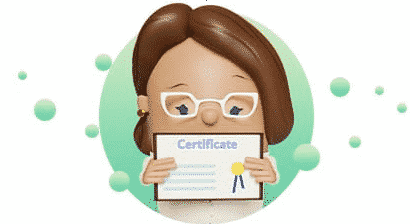
According to data from the Congressional Research Service, the United States does have a population of 323 million people. The majority of these people have private health insurance or are enrolled in a government-sponsored health-care program (such as Medicare or Medicaid). In the United States, 9.2% of the population is uninsured.
There are multiple insurance lines of authority, or insurance of a particular subject matter area, that are available to customers in the United States (US) and in which insurance agents can be licensed. These include; property insurance, casualty insurance, life insurance and health insurance, among others. Most US customers choose to get both life and health insurance, and as such, for anyone looking for a career as an insurance agent a health and life insurance license is one of the most desirable insurance lines of authority.
Life Insurance License
A life insurance license enables an insurance agent to sell life insurance products within the state in which he or she is licensed. This involves explaining, selling and writing life insurance policies such as the following.
Traditional whole life insurance policies
These generally have higher premiums and cover the entire lifetime of the insured. They can be seen as long term investments as the policy involves a cash component which appreciates in value over time. Examples include:
- Ordinary whole life policies
- Limited-pay and single-premium whole life policies
Term life insurance policies
These generally have lower premiums and cover only a specified amount of time. Examples include:
- Level premium policies
- Decreasing premium policies
- Return of premium policies
Health Insurance License
A health insurance license enables an insurance agent to sell health insurance products within the state in which he or she is licensed. This involves explaining, selling and writing health insurance policies. Health insurance policies are aimed at reimbursing the insured for expenses incurred as a result of injury or illness. There are various types of health insurance coverage, including, among others:
- HMOs. These insurance policies give the insured and his or her beneficiaries access to a network of care providers, hospitals and specialists.
- PPOs. These insurance policies are more flexible than the HMOs and offer coverage even where the healthcare provider is not within a designated network of providers.
- HSAs. These are essentially medical savings accounts. While the insured may pay higher deductibles, they are able to save for medical expenses which are not covered by the insurance policy.
Why are Health and Life Insurance Licenses Desirable?
Individuals tend to apply for both licenses simultaneously. As can be seen from the above discussion, these licenses cover a wide range of policies which are commonly taken out by customers. These licenses are therefore desirable to anyone looking to build a business or career in insurance.
Other Desirable Insurance Licenses
While a life and health insurance license authorises an insurance agent to sell life and health insurance policies, it does not authorise an agent to sell policies related to, for example home insurance, auto insurance, general liability insurance, crime insurance, or woker’s compensation insurance.
In order to sell these types of insurance policies, an insurance agent must also acquire a property and casualty insurance license. Furthermore, life insurance policies are sometimes tied to securities investment. For an agent to to be able to sell the full spectrum of products, he or she must therefore have the following licenses:
- Health and Life Insurance
- Property and Casualty Insurance
- FINRA
The most desirable insurance lines of authority will be those that allow an insurance agent to offer his or her customers the widest range of insurance products, and maximise his or her business. This will therefore require licensing in all of the lines of authority listed above. While it is possible to obtain these various licenses independently of each other, the most desirable option for insurance agents is to obtain all in order to be able to write all lines of insurance for their customers. Further information on each type of license as well as links to online resources can be found at Life and Health Insurance License.
Challenges in Obtaining Health and Life Insurance Licenses
As with anything that’s desirable and worth having, a life and health insurance license does not come easily or cheaply. The requirements for obtaining the license differ according to the State in which the individual intends to work. In Michigan, for example, an application must be made to the tune of $15 for each type of business the individual intends to sell. According to DIFS each application takes approximately 14 to 21 days to process in the state of Michigan. Prospective insurance agents will then need to study for and pass the State’s life and health insurance exam. Doing so requires several weeks of course work followed by the exam itself which is several hours long. There is a fee charged for each attempt made at the exam and approximately 50% of first-time exam takers do not pass the exam.
Should an agent pass the exam, he or she will then be required to pay $15 to $200 per line of insurance every two years in renewal fees (for most states). There are also education courses agents are required to take in order to renew their licenses.
These challenges should not deter those looking for a career in insurance generally and in life and health insurance in particular. If it weren’t challenging, it wouldn’t be desirable.
ATTENTION READERS
We See The World From All Sides and Want YOU To Be Fully InformedIn fact, intentional disinformation is a disgraceful scourge in media today. So to assuage any possible errant incorrect information posted herein, we strongly encourage you to seek corroboration from other non-VT sources before forming an educated opinion.
About VT - Policies & Disclosures - Comment Policy



